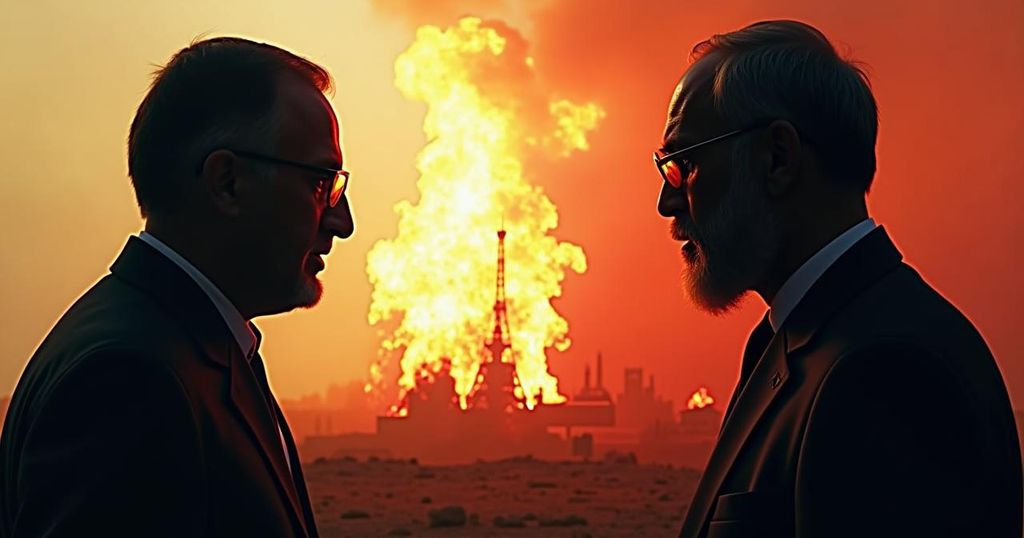Escalation in Israel-Iran Conflict Challenges Harris’s Campaign Strategy
The Israel-Iran conflict has escalated, affecting U.S. political dynamics and posing lasting challenges for Vice President Kamala Harris ahead of the 2024 election. Amidst fears of chaos and instability, Harris’s condemnation of Iran juxtaposes against narratives promoted by Donald Trump, emphasizing the critical implications of foreign affairs on domestic political fortunes as the election approaches.
The recent escalation in the Israel-Iran conflict has significantly impacted the political landscape in the United States, particularly affecting the prospects of Vice President Kamala Harris as she approaches the 2024 election. With the backdrop of Iranian missiles targeting Tel Aviv, the ongoing hostilities have manifested a narrative of global unrest, which strengthens former President Donald Trump’s claims regarding the Biden administration’s perceived weaknesses in leadership. Six months prior, President Biden and Vice President Harris were navigating a delicate balance, torn between progressive factions advocating for a reassessment of support for Israel and moderate constituents calling for steadfastness. Hope for de-escalation seemed plausible, yet the situation has rapidly deteriorated, highlighted by Netanyahu’s assertive military stance and his commitment to retaliate against Iranian aggression. In the run-up to the imminent elections, Harris faces the challenge of mitigating the implications of this crisis on her campaign. Within the framework of the vice-presidential debate, now overshadowed by military developments, Harris emphasized her unequivocal condemnation of Iran as a “destabilizing, dangerous force in the Middle East.” In contrast, her running mate, Governor Tim Walz of Minnesota, framed the conflict as a leadership test, stressing, “What’s fundamental here is that steady leadership is going to matter.” As election day approaches, the Biden-Harris administration grapples with the harsh realities of foreign policy entanglements that threaten to overpower their electoral narrative and resonate negatively among undecided voters, potentially confirming Trump’s assertions regarding a chaotic world under their watch.
The Israel-Iran conflict has seen a resurgence with recent missile launches from Iran targeting Israeli cities. This upsurge is not only a military and geopolitical issue but also has profound implications for U.S. politics, particularly as the 2024 election approaches. Vice President Kamala Harris, alongside President Biden, previously sought to maintain a balanced approach in the face of increasing hostilities in the region. The administration’s handling of this crisis is increasingly being scrutinized by both supporters and opponents, influencing public perception and voter sentiment as they head into the elections.
In conclusion, the intensifying conflict in the Middle East poses significant challenges for Vice President Kamala Harris and the Biden administration as they navigate a complex political landscape. The narrative of unstable global leadership, particularly highlighted by contrasting views between the current administration and Donald Trump, has the potential to sway undecided voters at a critical juncture in the election campaign. Harris’s commitment to denounce Iranian provocations may resonate with constituents, but the overarching narrative of chaos and discord could overshadow her efforts to present a stable and capable leadership image as election day nears.
Original Source: www.nytimes.com




Post Comment